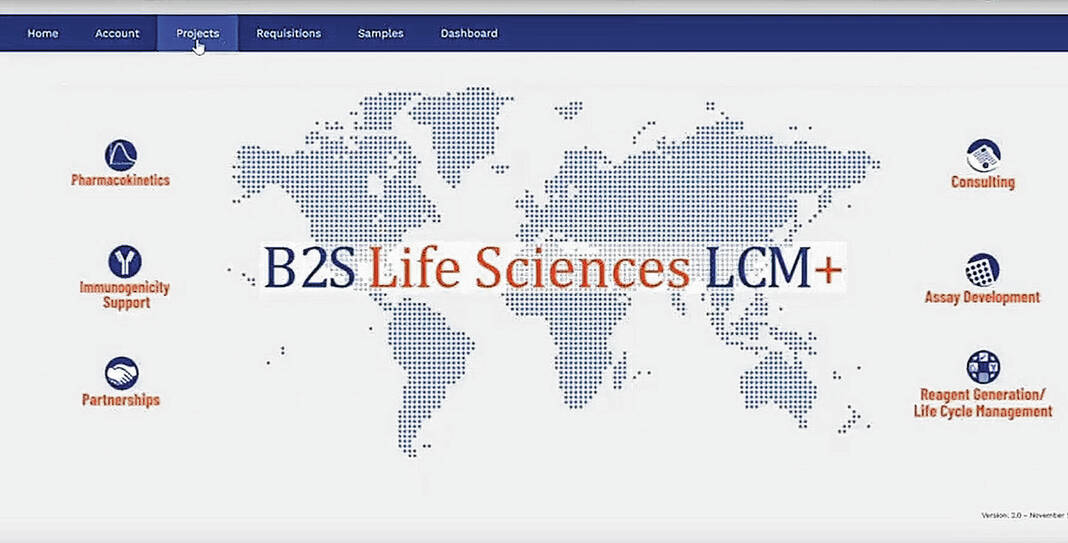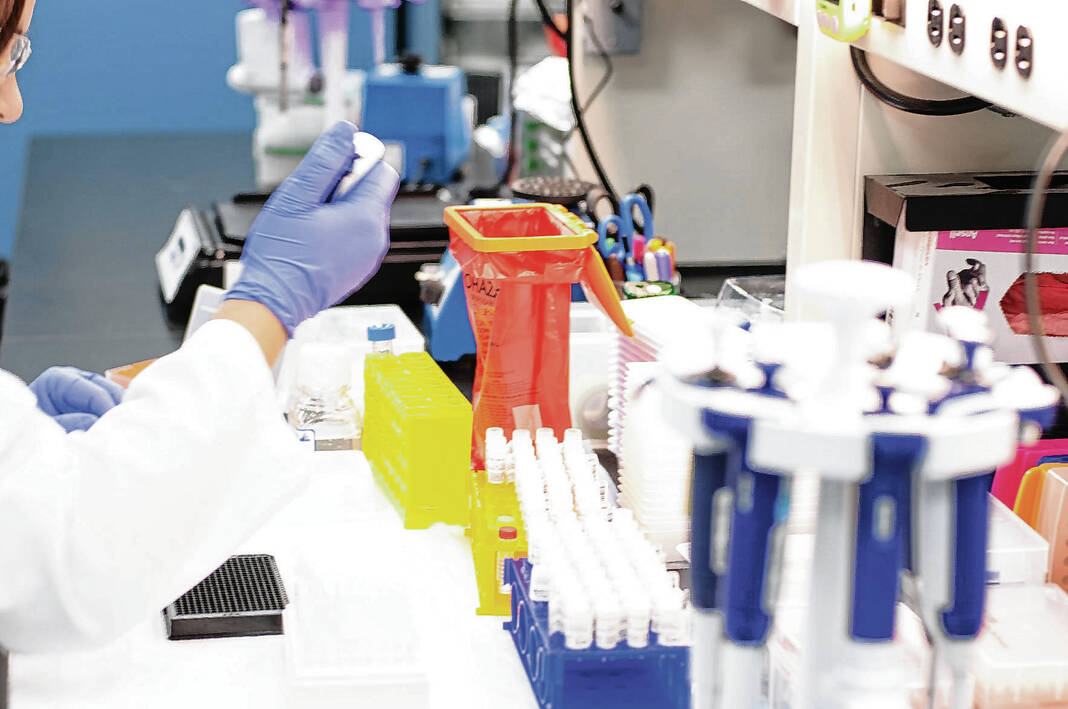An emerging field of pharmaceuticals is showing success in eliminating cancers, solving neurological complexities and stopping the spread of infectious diseases.
Companies around the globe are tapping into biotherapeutics — therapies derived from biological sources — to attack some of the most daunting medical challenges facing the world.
And a key component of the critical innovation is being created inside a small facility in downtown Franklin.
“This is about getting new, innovative medicines to patients as soon as we can,” said Ron Bowsher, partner and CSO of B2S Life Sciences. “This puts the knowledge, information and decision into the hands of the customer.”
B2S Life Sciences, a locally-based bioscience company, has developed a first-of-its-kind system to help track and manage key components in the development of new biotherapeutics. Their proprietary Life Cycle Management Plus system gives companies across the industry the ability to monitor critical reagents — essential substances used to determine safety and effectiveness in drug trials.
By giving drug developers a clear picture of the availability and status of these substances, B2S is helping new treatments reach patients as quickly as possible.
“We’ve had a lot of pride in being able to do this from Franklin,” said Aleks Davis, partner and CEO of B2S. “For the most part, everything we’ve done ourselves. The concept, the execution of it, it means a lot to us. It is being seen as a valuable tool for the global pharmaceutical industry to have access to and to utilize.”
Increasingly, biotherapeutic drug candidates have become vital tools in attacking hard-to-treat diseases.
Biotherapeutics are products in which developers harness living cells to make or modify proteins to create therapies, according to the International Federation of Pharmaceutical Manufacturers and Associations. Insulin, used by diabetics to regulate blood sugar, was the first modern medicine produced using biotechnological methods.
Since that time, biotherapeutic medicines have been developed and licensed to treat illnesses including cancer, heart disease, multiple sclerosis, anemia, and rheumatoid arthritis, according to the federation.
Now, roughly 25% of new drug approvals are biotherapeutics. Those drugs could not be developed without critical reagents.
When developing drugs, regulatory bodies establish steps that must be followed closely.
“In that process, there’s the necessity to generate data that supports the safety and efficacy — if it works or not,” Davis said. “Ultimately, that’s what regulatory bodies like the (Food and Drug Administration) want to determine.”
That work is the focus of B2S. The company, founded in 2016, provides pharmaceutical and diagnostic biological reagents, which are used to test for chemical reactions. Data from those tests help the pharmaceutical industry develop drugs.
“Those reagents are something you use within the context of that test that makes sure what you’re measuring is sensitive for what it needs to be and specific enough for what it needs to be,” Davis said. “These critical reagents are crucial for those tests.”
With the importance of those reagents to drug experimentation, it is imperative that companies know how much they have and how much is available as they’re planning clinical trials.
“They want to be sure there are no delays on anything, and you definitely don’t want that delay to be running out of a vial and it’s going to take six months to make it,” Davis said.
But up until now, no electronic inventory management system existed to track inventory and when those substances expired. Commercial systems within individual companies were common, but nothing that stretched across the industry, Bowsher said.
From the start, officials at B2S saw the need for such a system. Work started on such a database in 2016, with a pilot test for a customer in 2020, then multiple tests and improvements over time. Incrementally, they rolled it out to other customers, Davis said.
Customers can go into the system and see how much of reagents they own. The portal includes easy-to-identify trackers of how much of a substance they have — almost like the gas gauge on a car.
“We have customers all over the world. Instead of picking up the phone and saying, ‘We have 16 samples here,’ we created this system where they can not only get the information, they can manage it,” Bowsher said.
The process consists of three components: the software system developed by B2S to manage critical reagents, freezers to store those reagents in, and testing to monitor the characteristics of the reagents. All of that is done in Franklin.
“The system allows the globalization of it and the ease of it. But having the facility to manage it all, in addition to having the analytical capabilities to do the testing is what brings it all together,” Davis said.
In late July, a paper submitted by B2S for peer review was accepted and published in the journal Bioanalysis outlined the system and its importance.
B2S is a small company — they just hired their 50th employee — without the marketing budget to spread the word in the industry about the system. So being included in a peer-reviewed journal was vital, Bowsher said.
The feedback they’ve received has been nearly all positive.
“It’s been met with astonishment. They can’t believe it. And what they really can’t believe is that this innovation is occurring in Franklin, Indiana,” Bowsher said. “It’s not occurring on the East Coast or the West Coast, it’s here in Indiana.”









